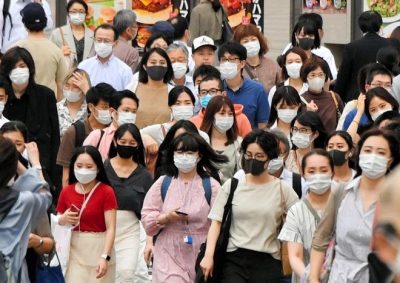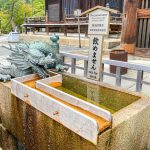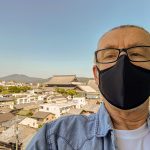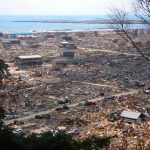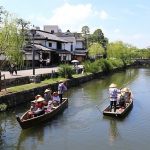There are recent studies that indicate Japan’s mask culture is learned at an early age. According to a survey, at this time 98% of Japanese people say they always wear a mask, even when outdoors. Even before the COVID-19 pandemic, most Japanese had no problem wearing a mask unlike the resistance found in the United States and other countries. Mike, the owner, has told me that many more people here in Japan are wearing face masks than in America even before the change in the CDC guidelines regarding face masks in America. There are mainly four reasons that mask-wearing is more common in Japan and that Japan’s mask culture is so common.
Allergies
First, about one-third of the Japanese population is allergic to pollen, specifically cedar pollen. Since 70% of Japan is covered with forests, this creates a perfect storm of many people with severe cases of hay fever. From the months of February to May, Japanese television stations forecast the expected pollen count daily. As a result, many people wear a mask to reduce or prevent their allergies from flaring up.
Consideration for Others
Second, in Japan, in consideration for other people it is considered good manners to wear a face mask if you have a cold. Mike, the owner related a story to me. A number of years ago he had a bad cold, and went to a doctor’s office. Being a typical Westerner, he did not wear a face mask. He said the first thing they did when he walked in the door was they handed him a face mask to wear.
Group Pressure
Third, a survey done earlier this year showed that more Japanese were worried about fitting in than were worried about the COVID virus. In other words, they were more scared of being scolded about not wearing a mask than they were scared of COVID. This illustrates the power of group pressure in Japan.
The Differences Between Japanese and English
And lastly, recent scientific studies have shown that Japanese people mainly focus on the eyes of a person who is speaking while native English speakers tend to let their eyes linger on the mouth. When I started to work as an English interpreter guide almost 20 years ago, I felt exhausted using my mouth after speaking English all day. I had to open and close my mouth much wider in speaking English than while speaking Japanese. Recent scientific studies have shown that Japanese babies as young as 6 months old focus on the eyes while being talked to. But 6-month-old babies in an English-speaking environment focus on the mouth. So this practice is learned at a very young age.
The Japanese language doesn’t have many vowels and consonants so we don’t have to read lips when listening to others. We just focus on the eyes of a person who is speaking Japanese. We have a saying in Japanese: ‘The eyes speak louder than the mouth.’ But English, which has many consonants, speakers move their mouths in various ways. It’s easier to accurately grasp what the speaker is saying by looking at their mouth.
At this time, almost all of the Japanese wear a mask everywhere.
We will see whether the Tokyo Olympic Games will end in success thanks to this mask culture.

